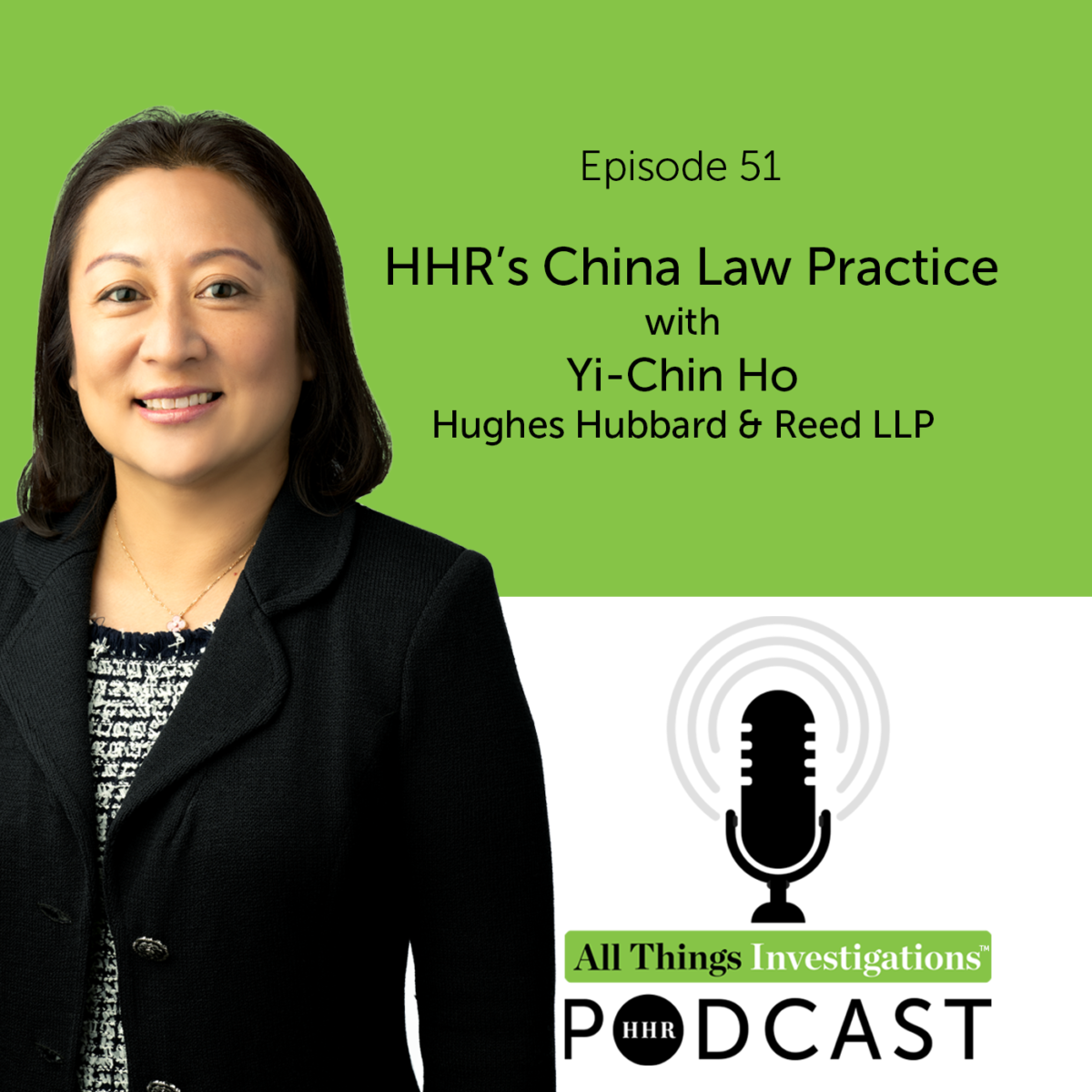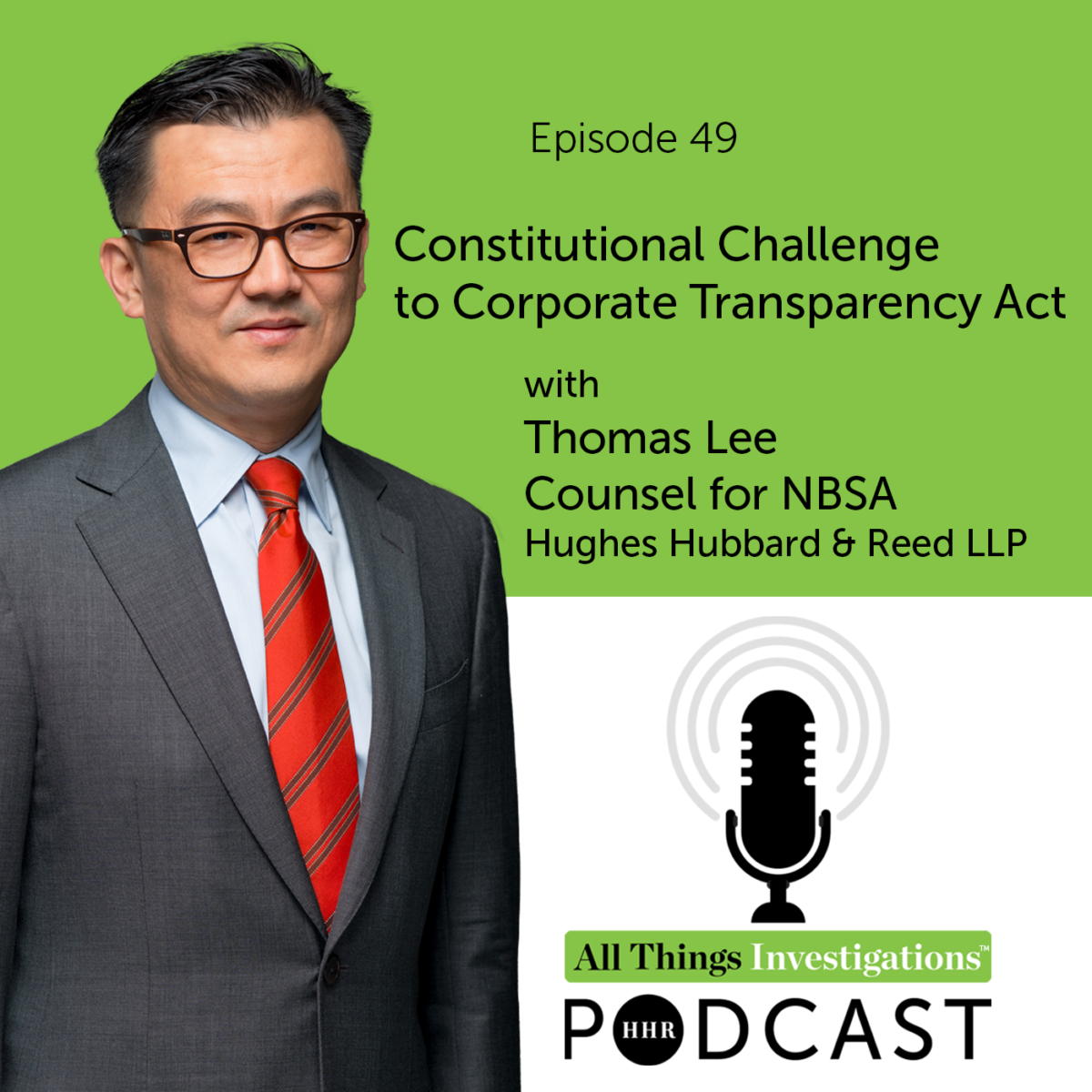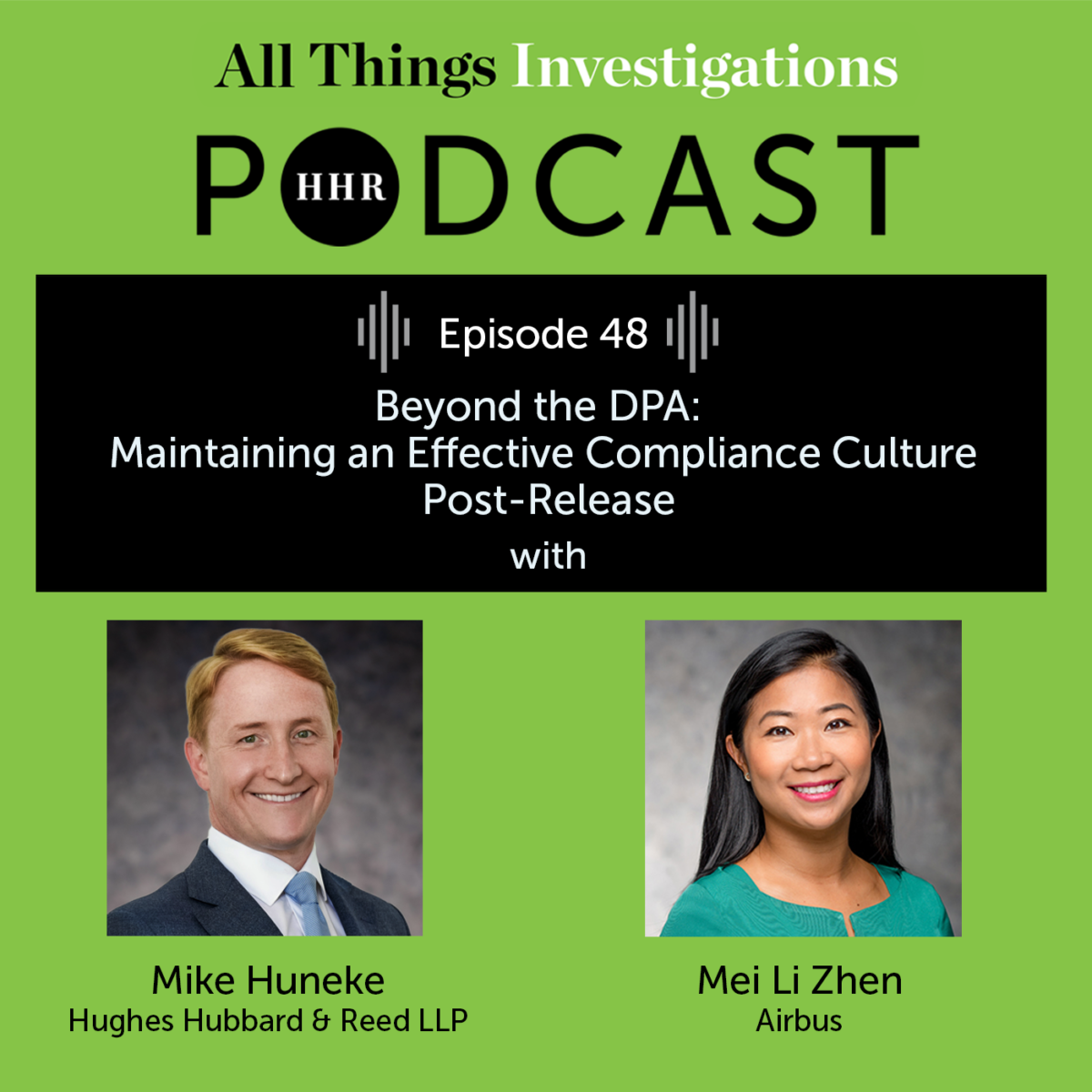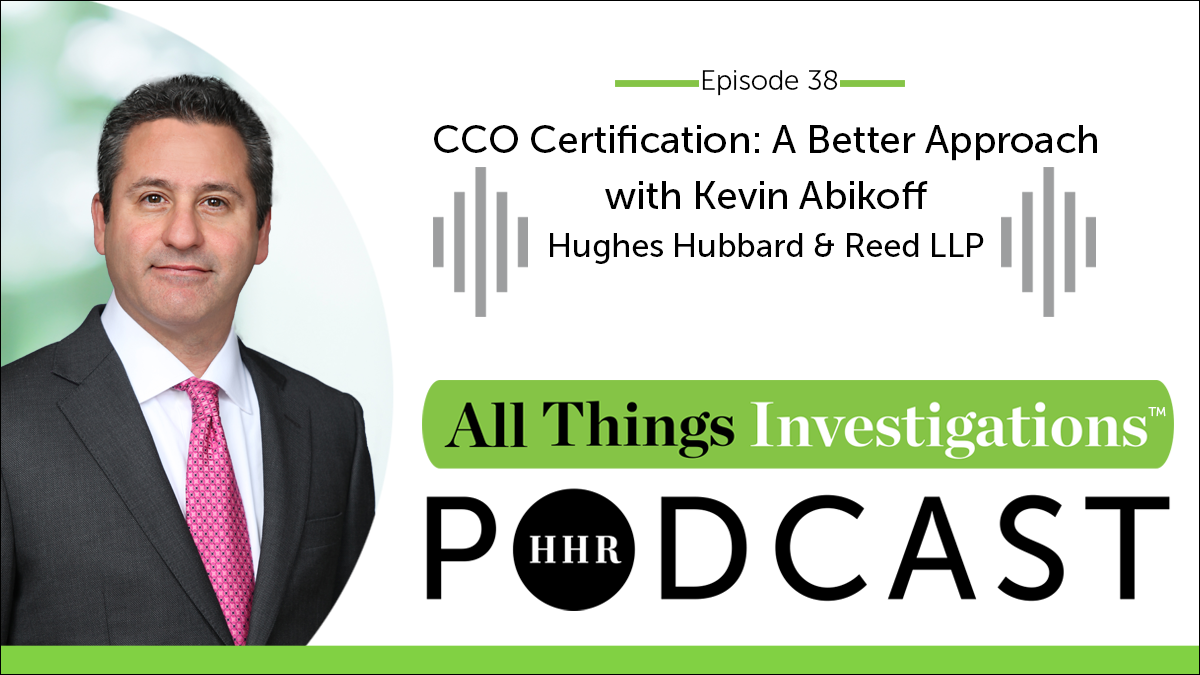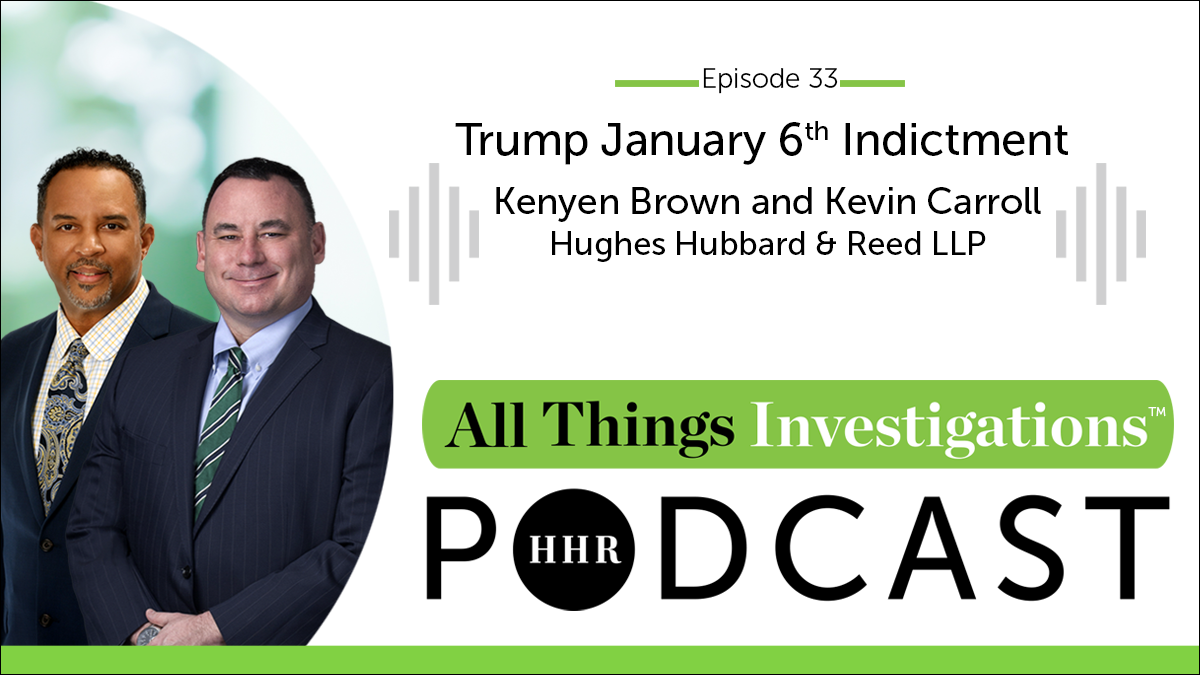Welcome to the Hughes Hubbard Anti-Corruption & Internal Investigations Practice Group’s podcast, All Things Investigation.
In this episode, Tom Fox is joined by Yi-Chin Ho, who is the head of the firm’s China Practice.
Yi-Chin Ho is a seasoned legal professional and co-chair of the China Practice at Hughes Hubbard Reed, with a strong foundation in cross-border legal practice.
Ho’s perspective on cross-border legal practice, deeply embedded in her varied experiences, is based on her belief in its critical role for business growth and development, even amidst political tensions between nations such as the US and China. She underlines the importance of the symbiotic relationship between countries, emphasizing their mutual dependency on each other’s goods, services, and expertise.
Ho, a trilingual, cross-cultural lawyer, believes in finding creative solutions and providing effective counsel to navigate through challenging situations in cross-border dealings. Her culturally diverse background and proficiency in Mandarin Chinese have been instrumental in bridging gaps and facilitating successful business transactions between different countries.
Key Highlights:
- Cultural Nuances in Cross-Border Business Engagement
- Strategic Advisory for Cross-Border Disputes
- Discovery Challenges in Cross-Border Investigations in China
- Growing Preference for Chinese Arbitration Venues
- Risk Assessment and Negotiation Strategies Guidance
Resources:
Hughes Hubbard & Reed website


